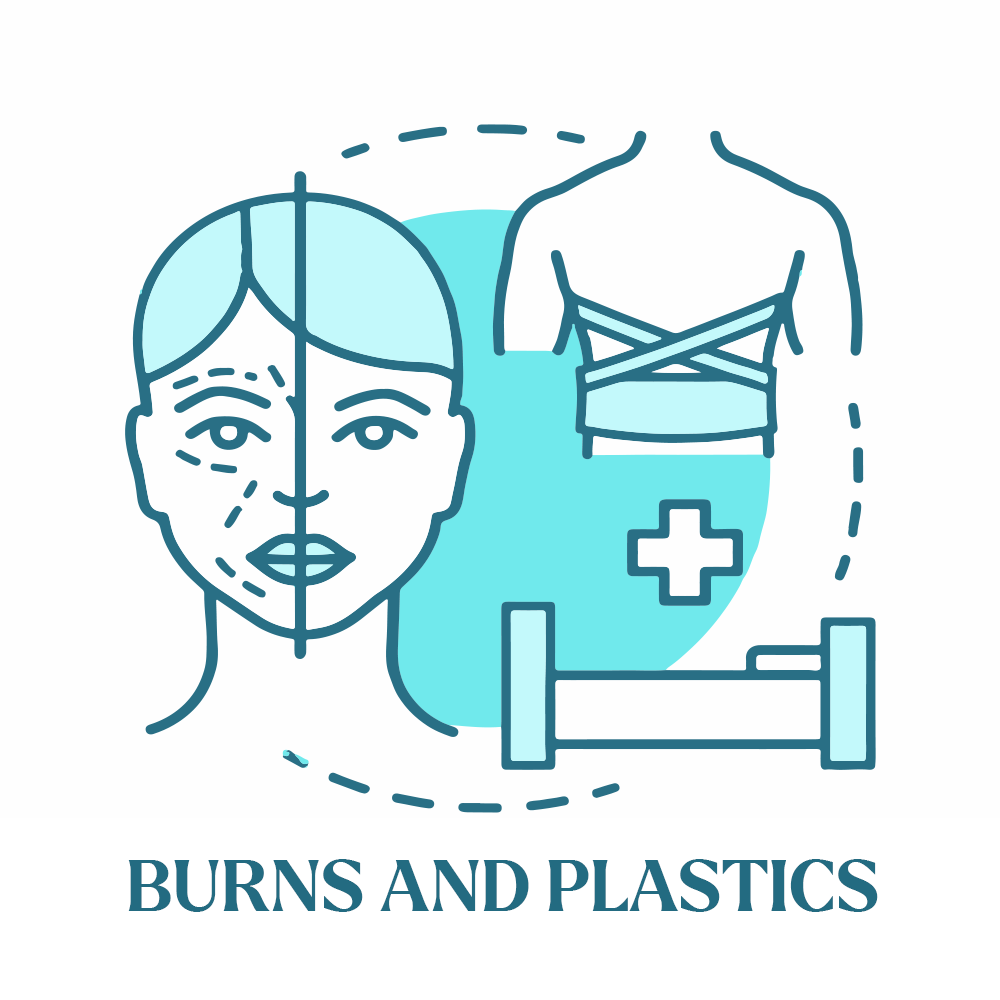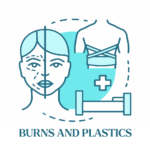BURNS AND PLASTICS
study name
Metacognitive Therapy (MCT) for Burns, Plastics, and Reconstructive Surgery Patients
Two linked studies were conducted as part of two Doctorate in Clinical Psychology theses.
Study Participants
- Adults aged 18 or older
- Referred to the Burns and Plastics Psychology Team at Wythenshawe Hospital who had either burns, injuries or who have needed plastic or reconstructive surgery at least one month prior.
Study design
- Study One: Qualitative study; semi-structured interviews after receiving either burns treatment, plastic or reconstructive surgery.
- Study Two: Feasibility and acceptability trial of group-MCT
Info Tabs

- Burns and other injuries requiring plastic and/or reconstructive surgery (BPRS) are serious, often unexpected, and increase the risk of psychiatric morbidity.
- Cognitive behavioural therapy (CBT) is a gold-standard treatment in mental health but may be less effective in physical health settings
- Metacognitive therapy (MCT) shows initial promise in reducing symptoms of anxiety and depression in people with cancer and cardiac rehabilitation patients.

Study One
- To understand patients psychological experiences (i.e. thoughts, feeling, and coping behaviours) of having either a burn, injury, or plastic or reconstructive surgery
Study Two
- To establish the feasibility and acceptability of Group-Metacognitive Therapy (group-MCT) in a burns and plastics psychology service.

Check back soon for our results, or follow us on twitter or Instagram for our latest updates!
- Background
-

- Burns and other injuries requiring plastic and/or reconstructive surgery (BPRS) are serious, often unexpected, and increase the risk of psychiatric morbidity.
- Cognitive behavioural therapy (CBT) is a gold-standard treatment in mental health but may be less effective in physical health settings
- Metacognitive therapy (MCT) shows initial promise in reducing symptoms of anxiety and depression in people with cancer and cardiac rehabilitation patients.
- Study Aims
-

Study One
- To understand patients psychological experiences (i.e. thoughts, feeling, and coping behaviours) of having either a burn, injury, or plastic or reconstructive surgery
Study Two
- To establish the feasibility and acceptability of Group-Metacognitive Therapy (group-MCT) in a burns and plastics psychology service.
- Findings
-

Check back soon for our results, or follow us on twitter or Instagram for our latest updates!



